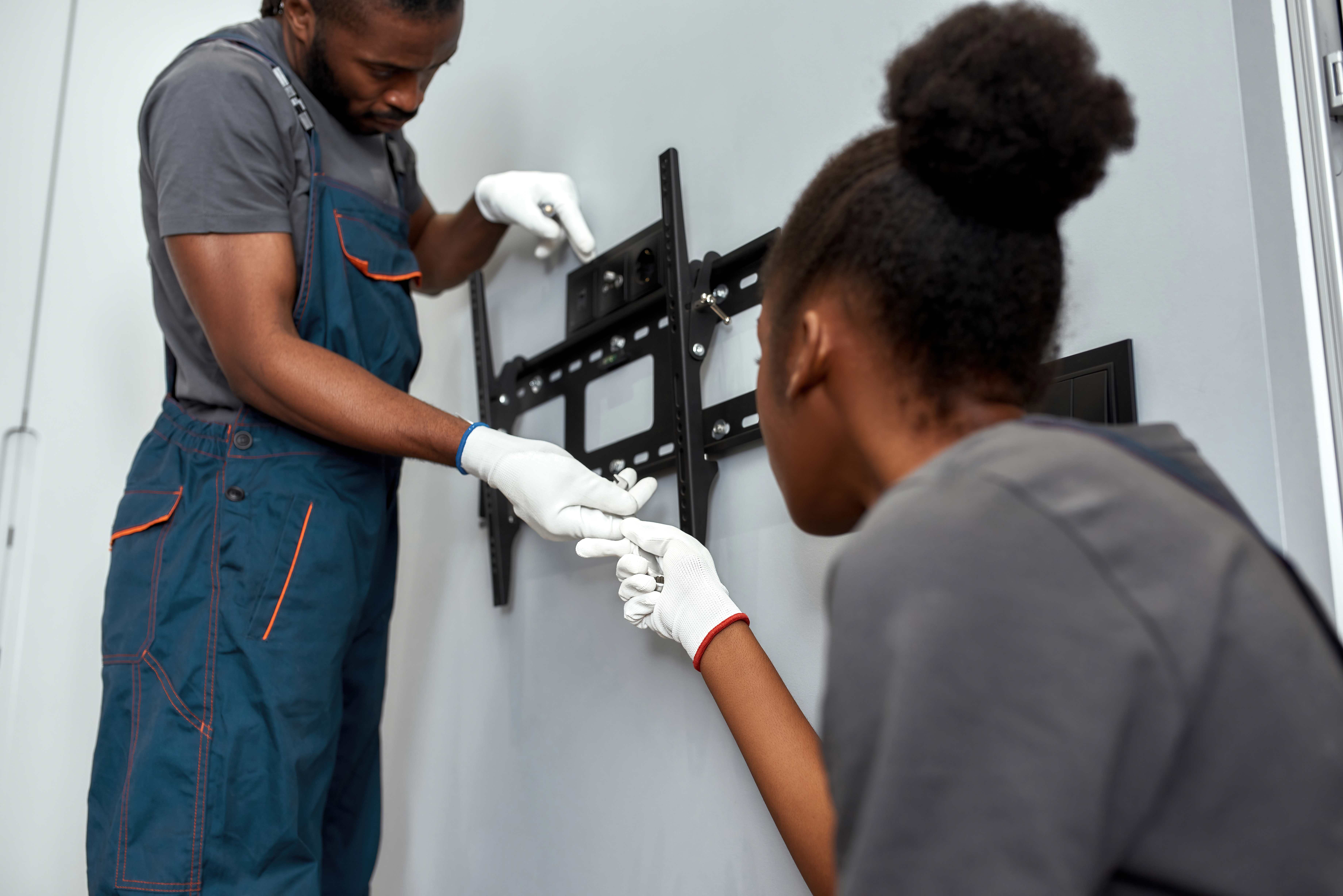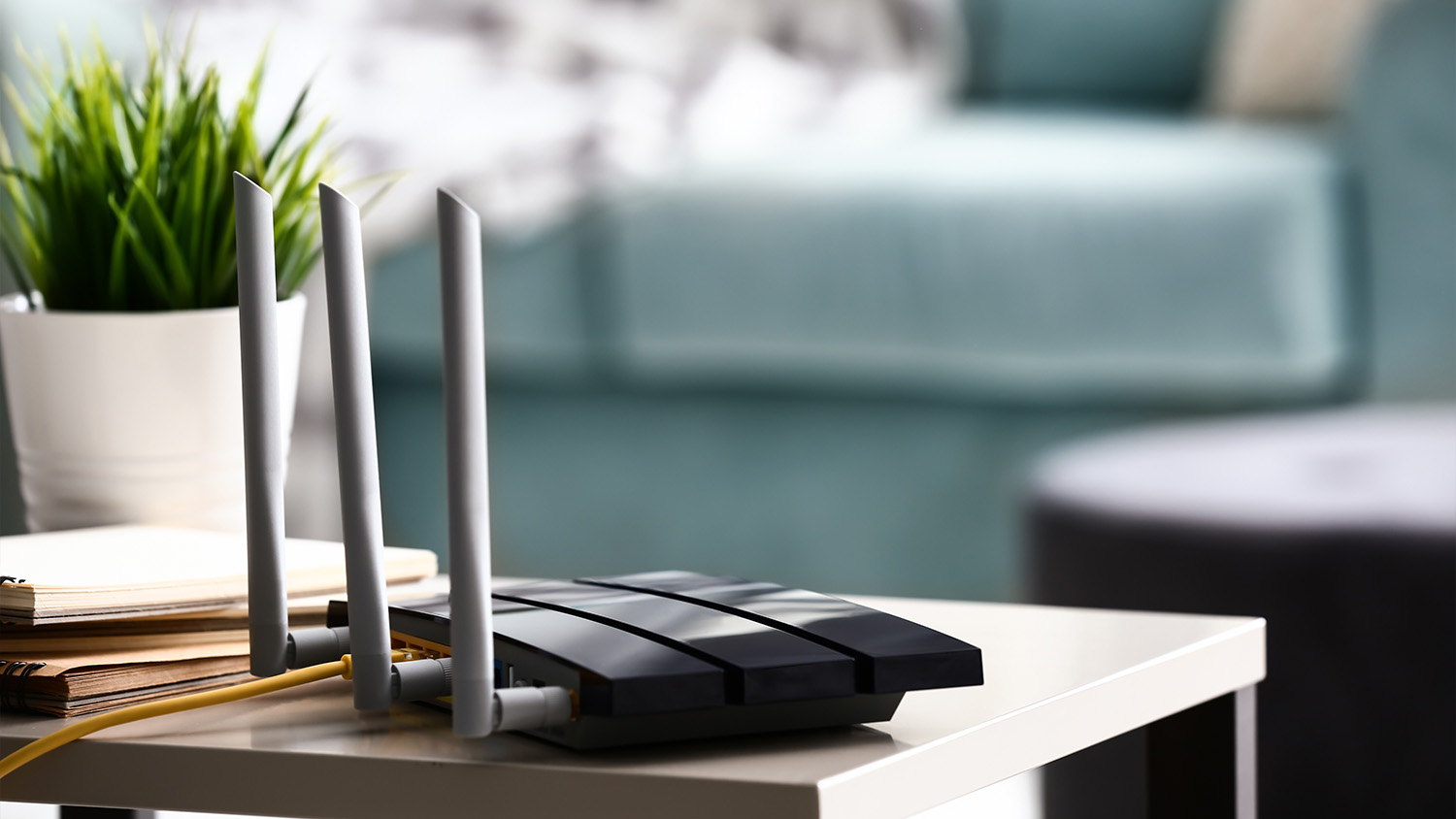
Learn who to hire to mount your TV on the wall—the best choice, what pros do, and costs—so you can compare quotes and book confidently.
The average cost of Ethernet installation for a computer network is $415.


Professional Ethernet installation averages $415, and most homeowners pay between $186 and $673.
The type of cable you choose can really affect the total cost, with prices ranging from $0.20 to $3.00 per foot.
It's more cost-effective to install Ethernet in new construction than to retrofit an existing building.
Your total installation cost will depend on labor rates, hardware, and other factors.
This article was updated using automation technology and thoroughly reviewed for accuracy by HomeAdvisor Editor Ryan Noonan.
Thinking about upgrading your home's internet connection for faster speed and reliability? Most homeowners spend around $415 on Ethernet installation costs, but prices start as low as $85 for small projects and go up to $1,550 for complex installations and larger networks. Factors like the type of cable you choose, the size of your network, and labor costs can affect the total price.
Here's what you need to know to plan for your Ethernet installation and get connected smoothly.
If you're working from home or running a small business, you might not need a super complex computer network. Most home offices have around five devices—including computers, phones, and smart gadgets. Using CAT 5 or CAT 6 cables with a basic router should give you enough speed and security. If you need coverage across widespread areas in your home, you can boost the signal with a Wi‑Fi extender, ranging from $20 to $250.
Small businesses often require more advanced installations to properly serve numerous computers, servers, rooms, phones, and other devices that need stable connections. Depending on the total network size involved, small business Ethernet installation costs are on the higher end of the range.
Most homeowners and small businesses hire a local electrician or network installation contractor for large-scale Ethernet installation. Electricians charge about $50 to $150 per hour for Ethernet wiring. A large-scale project with 2,000 feet of cable and eight connections can take 30 to 40 hours.
Budget for labor for both wiring and port installation, ranging from $2,500 to $4,600, or an average of $3,800 for a 2,000-foot installation. On the low and high ends, expect to pay between $1,500 and $5,200 in labor expenses.
Installing Ethernet cables in an existing building is more difficult and expensive than wiring a newly constructed home. Routing cables through existing walls requires more intensive labor and can add up to $2,500 to $3,500 in labor costs. With an existing home, pros may need to tear down walls, patch and repaint them, and remove old wiring. In a new build, your electrician can install Ethernet before the drywall goes up, simplifying the overall process.
Location plays a large role in the cost of setting up a computer network. Service providers are available in different areas and the type of internet they offer varies.
For example, if you live in a rural area, you’ll pay as much as $500 for satellite internet installation. On the other hand, you can opt for fiber optic internet for $200 in bigger cities.
Several other factors can impact the cost of your Ethernet installation and understanding how they impact your specific project can help you plan your budget.
Ethernet prices range from $0.20 to $3.00 per foot, depending on the cable type you choose. For 2,000 feet of Ethernet cable, you'll spend between $300 and $6,000 on materials alone.
| Cable Type | Average Cost per Foot | Cost per 2,000 Feet |
|---|---|---|
| Coaxial cable | $0.35 | $700 |
| Twisted pair cable | $0.15–$0.45 | $300–$900 |
| Fiber optic cable | $3.00 | $6,000 |
Coaxial cables cost about $0.35 per foot, so they're a cost-effective option for your Ethernet installation. However, they offer slower speeds compared to newer options like twisted pair and fiber optic cables.
Twisted pair cables, known as CAT cables, cost between $0.20 and $0.45 per foot. There are several types of CAT cable with CAT 5 being the oldest and least expensive. CAT 6 is the standard Ethernet cable found in most homes and provides up to 1,000 megabits per second (Mbps). CAT 7 offers speeds up to 10,000 Mbps and superior network security. You’ll also see this type referred to as shielded twisted pair (STP).
| Ethernet Cable Category | Cost per Foot (Installed) | Network Speed |
|---|---|---|
| CAT 5 | $0.20 | 100 Mbps |
| CAT 5e | $0.25 | 1 Gbps |
| CAT 6 | $0.30 | 1 Gbps (larger bandwidth) |
| CAT 6a | $0.35 | 10 Gbps |
| CAT 7 | $0.35 | 10 Gbps (larger bandwidth) |
| CAT 8 | $0.45 | 40 Gbps |
Fiber optic cable pricing is about $3.00 per foot for materials alone, meaning that 2,000 feet of this cable costs around $6,000. Although fiber optic cables are pricier per foot than other options, they offer the best security, speeds up to 100,000 Mbps (100 Gbps), and stable connections over greater distances.
Choosing fiber optic cable can be a strategic long-term investment. This type of cable is immune to electrical interference, making it ideal in homes with several devices. It’s also resistant to environmental factors and less prone to wear and tear.
The hardware costs of a home network include routers and modems, which average $275 and $125, respectively.
The cost of installing telephone jacks, like RJ45 jacks, plates, and plugs, can range from $100 to $280, although these costs are almost all labor. Off-the-shelf Ethernet switches cost between $50 and $100, but each port can cost about $10 to $15 to configure if you need custom settings. Once you configure your network, you can decrease costs by sharing peripheral devices, such as monitors, modems, and printers.
Setting up an internet connection costs $10 to $500. Providers often waive their setup fee as an incentive for signing up, assuming a site visit isn't necessary. If your home's current wiring doesn't support the speed you want, a technician may need to upgrade it.
Instead of a flat fee, note that leasing a router typically incurs a one‑time fee of $10 to $25, or you can opt to purchase a router for $50 to $500. This estimate assumes the use of CAT 5e cable with a maximum run of 150 feet.
| Home Network Equipment | Cost |
|---|---|
| Modem | $60–$250 (or provided by ISP) |
| Router | $50–$500 (to purchase) |
| Computer | $700–$900 (basic models) |
| Electrical outlet installation | $100–$280 |
| Network switch | $20–$2,500 |
Ethernet installation can increase home value by offering several advantages that appeal to appraisers and homebuyers, including:
Future-proofing your home: Upgrading to CAT 6a, CAT 7, or fiber optic cables gets your home ready for next-gen internet speeds.
Enhancing smart home capabilities: Ethernet offers a reliable connection for devices like security cameras and thermostats, making smart integration smoother.
Appealing to remote workers: With more people working from home, a house wired for fast, secure internet is a plus for potential buyers.
While professional installation gives you a reliable setup, the costs can add up. Here are some tips to keep your budget in check:
Focus on key areas: Install Ethernet where you need it most, like your home office or living room.
Hire specialists: Look for contractors experienced in Ethernet wiring and network configuration for the best results.
Invest in quality equipment: Choosing CAT 6a or fiber optic cables might cost more up front, but preparing your home for future tech now can save you money down the road.
Bundle services: If you're also upgrading your smart home devices or outlets, bundling these services can save you time and money.
No place is more important than your home, which is why HomeAdvisor connects homeowners with local pros to transform their houses into homes they love. To help homeowners prepare for their next project, HomeAdvisor provides readers with accurate cost data and follows strict editorial guidelines. We surveyed thousands of real customers about their project costs to develop the pricing data you see, so you can make the best decisions for you and your home. We pair this data with research from reputable sources, including the U.S. Bureau of Labor Statistics, academic journals, market studies, and interviews with industry experts—all to ensure our prices reflect real-world projects.
From average costs to expert advice, get all the answers you need to get your job done.

Learn who to hire to mount your TV on the wall—the best choice, what pros do, and costs—so you can compare quotes and book confidently.

The cost to install a projector and screen ranges, depending on equipment, labor rates, mounting complexity, room layout, and add-ons.

Learn how much it costs to get internet installed in your home, and use this guide to plan your installation by exploring cost factors, equipment options, and budgeting tips.

HomeAdvisor's Computer Repair Cost Guide gives average prices to fix a desktop or laptop. Explore prices lists for common replacements like hard drives, keyboards, batteries, motherboards & more. Compare Windows vs. Mac repair costs.

Follow this guide to suss out how much youll pay for a repair technician to come service your computer network, including your router, modem, or wiring.

Use this guide to budget for TV antenna installation costs. Break down cost factors like rooftop versus pole or mast installation and indoor or outdoor setups.